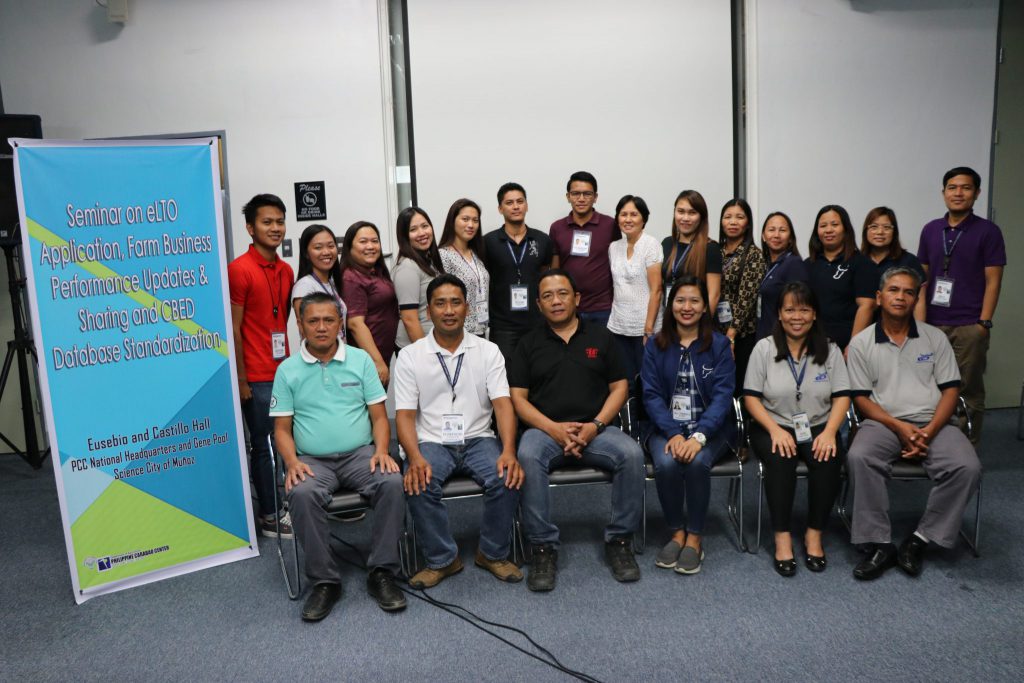“In every challenge comes great opportunity” is a saying that holds true even in the country’s problem on malnutrition. To help alleviate undernutrition among daycare and elementary school children, the country is requiring about 605,000 liters of milk a day. This was based on the series of consultation with the agencies involved in the crafting of RA 11037 Implementing Rules and Regulation.
RA 11037, otherwise known as “Masustansiyang Pagkain para sa Batang Pilipino Act”, was signed by President Duterte on June 20, 2018 to establish a National Feeding Program by the Department of Social Welfare and Development (DSWD) and the Department of Education (DepEd) in coordination with various agencies including the Philippine Carabao Center (PCC), National Dairy Authority (NDA), and Cooperative Development Authority (CDA).
The Milk Feeding Program component, in particular, promotes the utilization of locally-produced fresh milk and fresh milk-based products in addition to the fortified meals that will be provided to children for at least 120 days. Thus, the implementation of RA 11037 not only serves as a solution to address undernutrition but as a livelihood opportunity for “carapreneurs (carabao entrepreneurs)” as well.
Carapreneurs, however, need to produce more and to comply with certain standards so they can qualify as suppliers of fresh milk and fresh milk-based products for the program. The PCC recognizes these concerns, and, therefore, continuously designs activities to prepare stakeholders in their engagement in the program implementation. The first set of activities was conducted on February 17-22, 2019 at the PCC National Headquarters, Science City of Muñoz, Nueva Ecija, which was participated in by milk processors and PCC frontliners – the CBED (carabao-based enterprise development) Coordinators.
Representatives from 10 dairy cooperatives/associations and a partner-university actively attended the orientation and workshop on electronic license to operate (eLTO) application, as spearheaded by Ms. Mina Abella, head of Carabao Enterprise Section, in partnership with the Food and Drug Administration- Region 3.
During the workshop, the participants learned the actual process of requesting for eLTO user account and password, and of preparing the required documents for electronic submission to FDA.
The activity output was very promising: Bantog Samahang Nayon Multi-Purpose Cooperative was able to prepare the required documents for application; Lamac Multi-Purpose Cooperative was able to upload the required documents; Eastern Primary Multi-Purpose Cooperative, Rosario Dairy Cooperative, Magdalena Agriculture Cooperative and Mindoro Dairy Cooperative had already requested for their user account; Mapiña Farmer Irrigators Association and Leon Confed Farmers Cooperative was in the process of preparing their documents; Catalanacan Multi-Purpose Cooperative was advised to follow-up the results of their first audit with FDA; San Agustin Dairy Cooperative was in the process of preparing for the final inspection; and the Cebu Technological University was in the process of preparing the required documents and in requesting for their user account. Once these organized farmers’ groups have secured their license from FDA, the NDA can accredit them as supplier of milk for the Milk Feeding Program.
The CBED Coordinators, on the other hand, attended the “Farm Business Performance Updates and Sharing” session facilitated by the PCC’s Business Development and Commercialization Unit to share their experiences in collecting and managing their carapreneurs’ enterprise data using the intensified research-based enterprise build-up (iREB) Client Dashboard. The activity also aimed to capacitate the coordinators in delivering the necessary assistance that will help improve the carapreneurs’ business performance every year. A sustained positive return on investment (ROI) in particular is a good indication that the carapreneur is indeed earning from the carabao-based business and is effective in marketing their produce such as milk and meat. A positive ROI will also help boost the carapreneurs’ confidence in expanding their dairy business or in motivating other farmers to engage in dairy business which will eventually lead to more milk production.
Enhancement of CBED Database was also introduced among the coordinators to ensure that the reproductive performance of carabaos owned by the carapreneurs are monitored and analyzed. There would be no milk output unless the female carabaos would get pregnant and produce calves. It is, therefore, necessary to have an updated data on breeding as a basis in making effective and timely decision to maintain productive animals, cull unproductive animals, and to provide appropriate production support services. The enhanced database, when updated and monitored regularly, can help reduce the calving interval and would result in increased calf and milk production.
The PCC’s activities and strategies will continually focus on improving and sustaining the business of carapreneurs so they can actively participate in development programs like the National Feeding Program. The LTO application and business performance analysis are just part and parcel of many other “big steps” where PCC and carapreneurs can work hand in hand.

